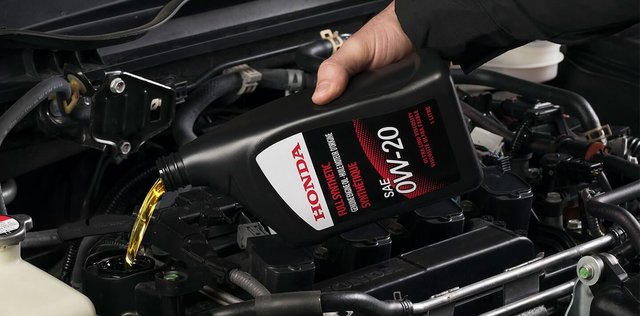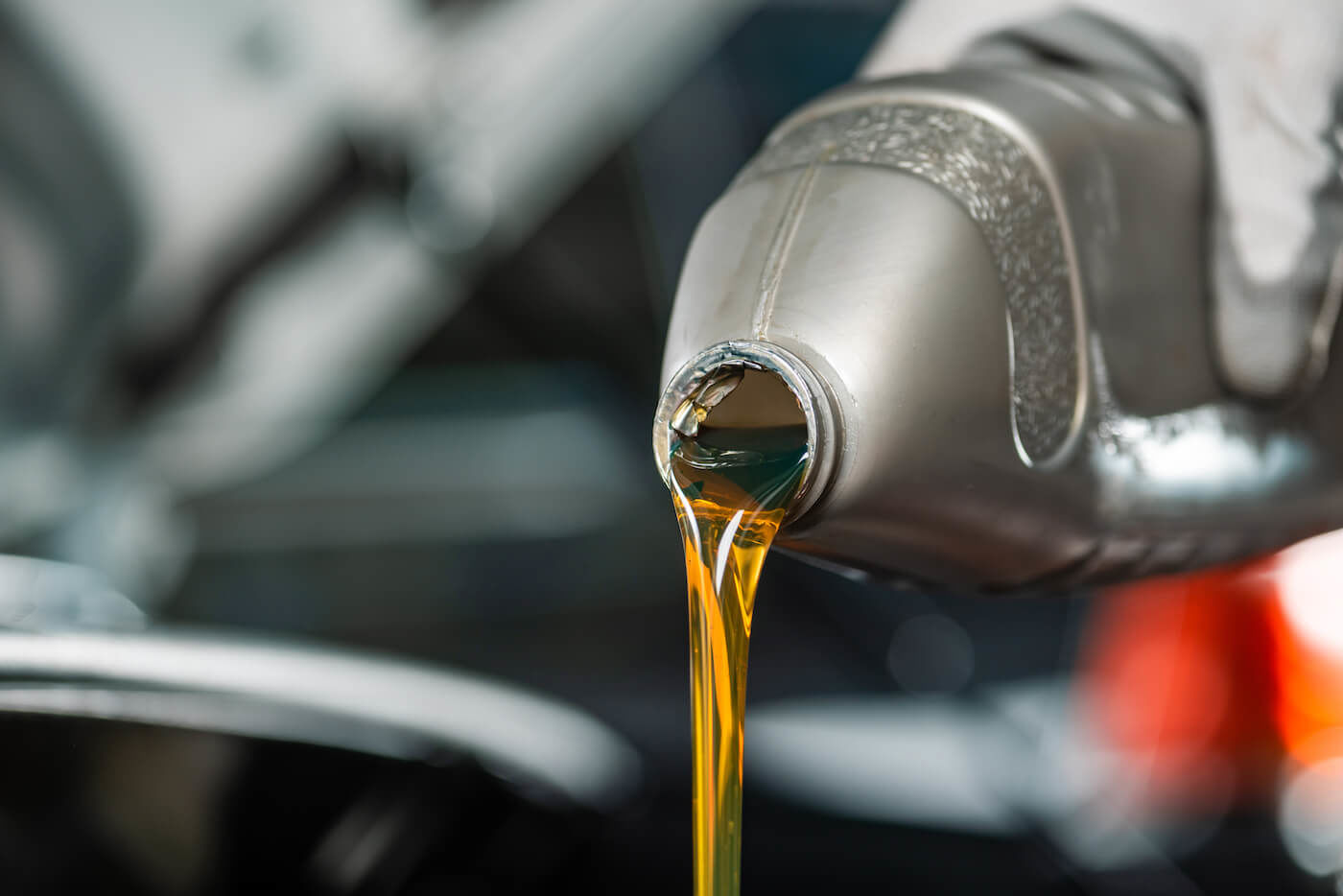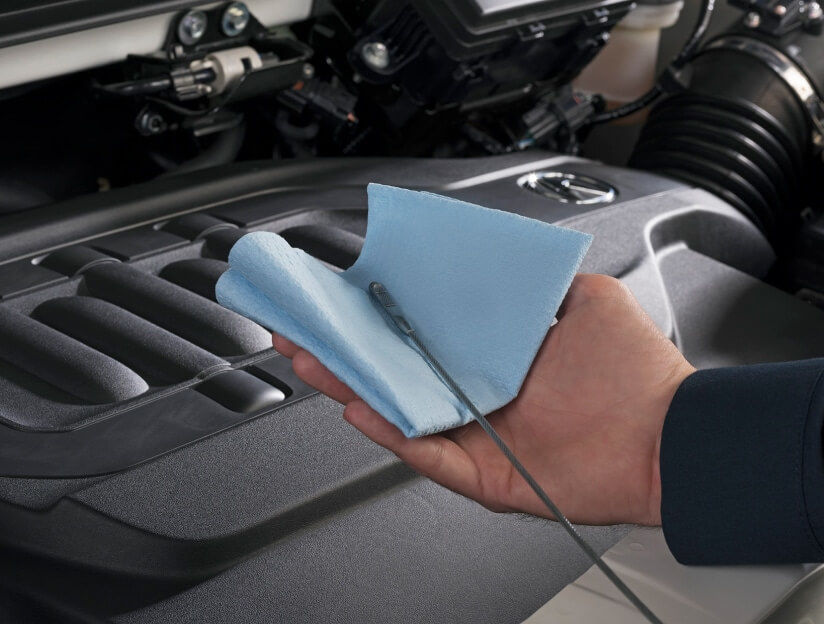2025 Honda CR-V 2025 Toyota RAV4 2025 Hyundai Tucson 2025 Kia Sportage 2025 GMC Terrain Other SUVs in the race Discover our complete range of SUVs...


Your Honda is due for an oil change, but you have many questions about it? While it is a frequent maintenance procedure, many drivers know very little about it. Learn how to pick the right oil and how to perform a Honda oil change for yourself. You can also have your Honda oil changed at a lower cost at your dealership.
Honda de Laval tells you everything you need to know about engine oil changes. You can also visit our service department for all your Honda maintenance needs, including purchasing new Honda parts. Our team will be happy to help you!

What kinds of motor oil are there?
When purchasing motor oil, you probably noticed that there are several categories with very different prices. As you can imagine, each type of oil has its own properties, and not all types work with different types of vehicles. Before changing the oil of your Honda, be sure to know more on this topic.
At first, if you start comparing the prices on the shelf, you will most likely be interested in mineral oil, also known as conventional oil. This is essentially a refined crude oil product; it is oil consisting of mostly natural components. It is called conventional because it was the first oil created for vehicles, and it is still widely used, especially for simple or older engines.
One of the features that distinguishes the types of oil is the difference in viscosity in cold and hot temperatures. This is the main characteristic that determines the oil’s performance in low and high temperatures. The greater the difference in viscosity, the more fluid or thicker it will become as temperatures change. Today's mineral oils are fortified with additives, but they nevertheless have a greater viscosity range than synthetic oil.
Synthetic oil is a more recent invention, and it is quite a bit more expensive than conventional oil. It is created in laboratories, where it is enriched, and the number of impurities is considerably reduced. Its viscosity range is very low, meaning it performs well at both low and high temperatures. That makes starting the engine much easier.
Among other advantages, synthetic oil helps you save fuel while also protecting different components of the engine from corrosion or rusting. Many modern vehicles require synthetic oil, especially those with smaller or turbocharged engines.
Which oil should you use for your Honda?
As mentioned above, you won’t always have the freedom to choose between one type and the other. While some engines can run with either oil without any issues, sometimes synthetic oil is the only right choice. This is probably the case if your Honda is new or if it is equipped with a turbo engine.
However, the best way to make sure you are using the right oil is by consulting the maintenance guide. Not only will it tell you what type of oil to use, but it will also give you additional information such as the required viscosity level.

When you change the oil on your Honda, be sure to follow the instructions in the guide. You could otherwise damage your engine inadvertently. What's more, your Honda dealer may refuse to honour your vehicle's warranty.
How do I change my oil like a professional?
Want to save money by doing your own Honda oil change? You can learn how by following a few simple steps.
First, you need to warm up your engine. Otherwise, you will not be able to remove particles that have solidified and settled at the bottom of the tank. Once your engine is warmed up, you're ready to change the engine oil. Raise the car and locate the tank and the nut that serves as its cap. Before removing the nut, place your container below it and be careful of hot splashes!
Then simply wait for the oil to drain and place the cap back on. Next comes the filter change: you will need to use a pair of pliers designed for this purpose to avoid piercing the filter. Once this is done, all that's left to do is to add oil to the engine using a funnel. Be sure to add the quantity indicated in the manual.

The right equipment
You will need special equipment for some of these steps. Depending on the ground clearance of your vehicle, you may need to raise it with special equipment such as ramps or a jack. You will also need filter clamps, wrenches and a drain pan.
If you don't own this equipment, or if the oil change is more complicated than you thought, then simply stop by at your Honda de Laval dealer! We will happily take care of all of your maintenance needs. We are able to perform all Honda maintenance services, and we only use state-of-the-art equipment.
Would you like to know the price of a filter change? Don't hesitate to contact our team of professionals for more information: we always take great care of your Honda and offer you fair prices.
How to dispose of old oil?
If you changed the engine oil of your Honda by yourself, you might wonder how to dispose of the old oil. It's important to never flush it down the toilet or down the drain, as it is a toxic and highly-polluting liquid. Instead, pour the old oil into an empty container and dispose of it at a recycling center near you. It’s that simple!
You can also trust our experienced experts with it, or contact Honda de Laval for more information. We look forward to helping you!
Other Articles That May Interest You
Honda Civic 2025: Pricing and Trims Interior and Exterior Design of the Honda Civic 2025 Dimensions of the Honda Civic 2025 Honda Civic 2025:...
Introduction Electric Charging Costs Costs of Public Charging Stations Cost Comparison with Traditional Fuels Recharge Time Honda Hybrid/Electric...




